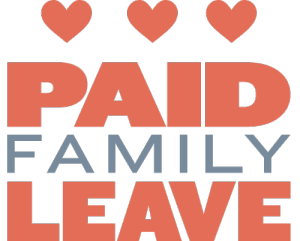You may have heard that DC’s paid family and medical leave program took an important step forward last week—but also that a new paid family leave bill was just introduced in the DC Council. Both are correct. Understandably, you might be a little confused.
 Never fear—DCFPI is here to break it down for you.
Never fear—DCFPI is here to break it down for you.
The short story is that while the DC Council approved a bill in December, some members and the business community want to consider an alternative that lowers the tax businesses would pay to support the program. As discussed below, any alternative should be assessed to make sure it is better for workers, as well as businesses.
Last Wednesday, Mayor Bowser allowed the Universal Paid Leave Act (UPLA) to move back to the City Council without her signature. This means the bill will become law after a 30-day congressional review period. Workers will get 8 weeks of paid leave to be with a new child, 6 weeks to care for an ill relative, and 2 weeks for their own health needs. DC employers would pay a 0.62 percent payroll tax ($310 a year for a $50,000 salary) into a fund that would be managed by the city.
Then, just yesterday, Councilmembers Evans and Cheh introduced a new bill that would provide the same benefits, but with a different structure. Smaller businesses (under 50 employees) would be covered by a government-administered program like UPLA and pay a 0.4 percent payroll tax into the fund. Larger employers would be required to provide family and medical leave benefits on their own—without the fund—but would still pay a 0.2 percent tax to help support the cost for small businesses.
Like unemployment insurance and Social Security, UPLA uses a social insurance model, which has been tested and proven to work well. Similar to these programs, a DC-run family leave program can provide benefits to workers with a predictable tax and low administrative costs. For this reason, all of the states that currently offer paid family and medical leave use this structure.
Any alternative structure should be studied carefully. We’ll be assessing it to see, for example:
- Whether low-wage workers have the same access to benefits,
- Whether the program is financially predictable and administratively manageable for employers of all sizes, and
- Whether the program is easy to enforce, and would be robustly enforced
It’s important to note that both the approved bill and the new proposal require DC to set up its own program. This means that policymakers should begin moving forward with implementation, to ensure that workers can begin collecting benefits as soon as possible. First and foremost, $20 million in new funding is needed in the FY 2018 budget for important start-up costs, such as IT infrastructure. This could be funded by changing DC’s fiscal policy to allow spending some of the recent surplus.
Because UPLA stands to help DC residents, small businesses, and the broader economy, we encourage policymakers to fully fund the program in the FY 2018 budget, so that we can get to work on implementing this very important program.
